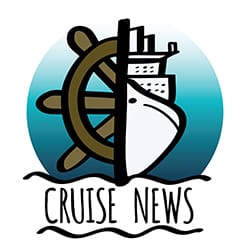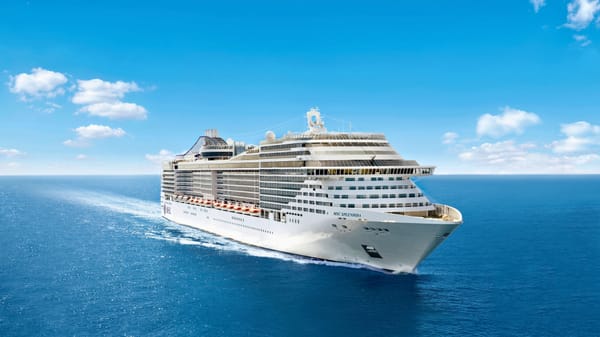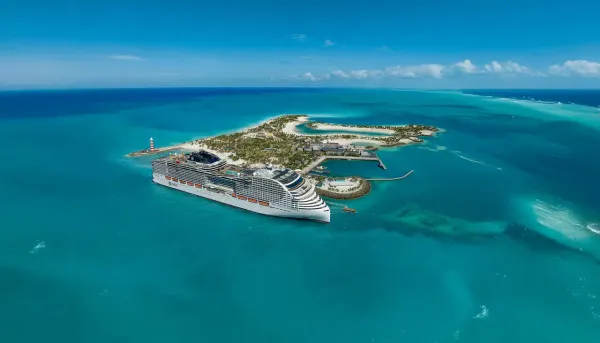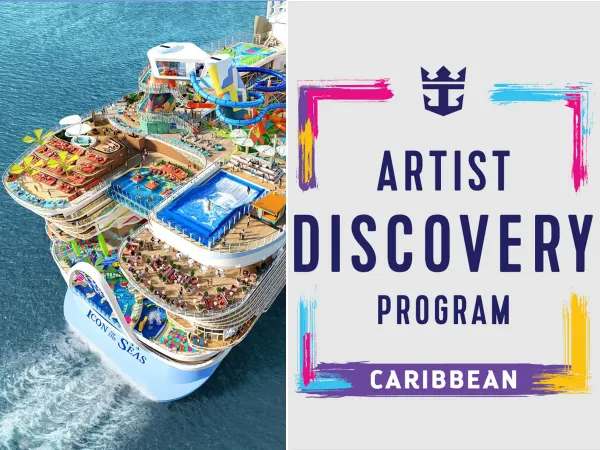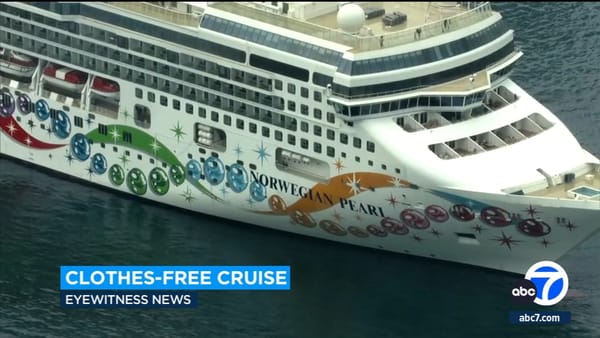Royal Caribbean Bans Duck Hunts on Onboard Central Park
Royal Caribbean’s ban on rubber duck hunts in Central Park reflects a broader move to protect its living gardens at sea, balancing popular guest activities with long-term preservation efforts.

Royal Caribbean has implemented a ban on rubber duck hunts in the Central Park areas on board its Oasis-class and Icon-class ships in an effort to protect their signature onboard gardens. The decision follows reports of damage caused by passengers searching for rubber ducks hidden among the lush greenery, including trampling flowerbeds and disturbing plant arrangements. Each onboard Central Park features over 20,000 live plants, trees, and shrubs maintained by a dedicated team of horticulturalists.
Why Rubber Ducks Became a Problem
Rubber duck hunts started as a passenger-led scavenger activity and quickly gained popularity, particularly among families. Guests would hide small rubber ducks throughout the ship and share their discoveries on social media. However, the activity took a toll on the onboard Central Park, as overly eager participants entered restricted areas, dug into the soil, and stepped on delicate plants. Staff reports indicated these actions threatened the integrity of the meticulously maintained greenery, prompting the need for intervention.
The New Policy and Its Scope
Royal Caribbean has designated the Central Park area as a duck-free zone. Signs posted within the garden read, "This is a duck-free zone. Please help us protect the plants." The ban applies exclusively to the onboard Central Park, while in other public spaces guests are allowed to hide rubber ducks provided they follow the provided guidelines. Specifically, guests are prohibited from placing ducks in certain locations where safety risks exist or where damage might occur.
- Not permitted: Central Park (onboard garden)
- Not permitted: Pools, hot tubs, and spa facilities
- Not permitted: Stairwells and confined corridors
- Not permitted: Shops and retail spaces
- Not permitted: Any area where items could fall overboard into the sea
Despite the restrictions in the Central Park area, guests can still participate responsibly in duck hunts by choosing safe locations that adhere to the cruise line's guidelines.
Central Park: A Unique Feature at Sea
Debuting in 2009 with Royal Caribbean’s Oasis of the Seas, Central Park redefined the cruise experience by introducing a full-scale outdoor garden at sea. The space spans multiple decks and features winding paths, tropical plants, trees, and flowers, creating a tranquil retreat from the bustling ship environment. The garden is also home to premium dining venues, live entertainment, and stylish staterooms offering picturesque views of the greenery. Subsequent Oasis-class and Icon-class ships have replicated and further enhanced the concept, solidifying Central Park as an iconic feature of Royal Caribbean's fleet.
Unlike artificial landscapes, Central Park’s horticulture is curated and cared for by an onboard team of experts. Their work ensures the garden remains vibrant despite the distinct challenges posed by maritime conditions. Royal Caribbean’s efforts to preserve this unique feature underscore its commitment to sustainable design and environmental stewardship.
Guest Reaction and Industry Perspective
The ban has elicited mixed reactions. While many families enjoyed participating in duck hunts, several guests understand the rationale for prioritizing the preservation of the live plants. One passenger shared on social media, "While it's sad to lose this activity, the plants are permanent, and preserving them is the right call." Another noted witnessing damage firsthand during a previous cruise, saying, "I saw people digging in the dirt looking for ducks – it was harmful and unnecessary." Online forums have reflected similar sentiments, with cruisers generally agreeing that protecting Central Park’s natural beauty outweighs the loss of the popular activity.
Industry analysts have also praised the decision, viewing it as part of Royal Caribbean’s broader sustainability efforts. By balancing passenger satisfaction with environmental considerations, the cruise line demonstrates its commitment to preserving signature features that enhance the overall appeal.
Frequently Asked Questions (FAQs)
Which ships does the duck hunt ban affect?
The ban applies to the Central Park area on Royal Caribbean’s Oasis-class and Icon-class ships, including Oasis of the Seas and similar vessels featuring this onboard garden.
Are duck hunts banned across the entire ship?
No. Guests are still allowed to hide rubber ducks in most public spaces aboard the ship, provided they avoid the restricted Central Park. Areas such as pools, hot tubs, retail spaces, stairwells, and confined corridors remain subject to guidelines designed to ensure safety and protect sensitive environments.
Why did Royal Caribbean introduce the ban?
Ship staff observed damage to the live plants caused by passengers searching for rubber ducks in the Central Park area. Actions like trampling flowerbeds and disturbing plant arrangements prompted the decision to protect the gardens and maintain their intended tranquil environment.
How has the passenger community reacted?
Passenger reactions have varied, with families lamenting the loss of the activity while others support the decision to preserve Central Park’s greenery. Many cruisers have called for more responsible alternatives to ensure enjoyment without risking damage.
What makes Central Park unique compared to other ship features?
Central Park is a full-scale outdoor garden with more than 20,000 live plants, trees, and flowers, designed as a peaceful retreat onboard. It spans multiple decks and includes walking paths, specialty restaurants, music venues, and staterooms with views of the garden, making it one of the cruise ship's most distinctive features.
